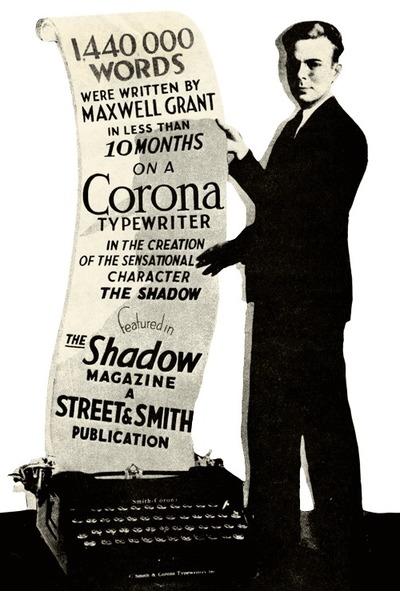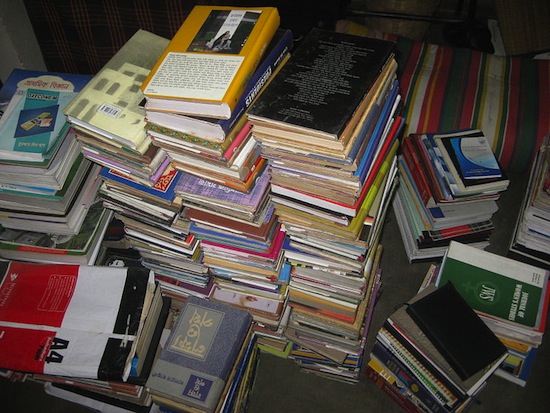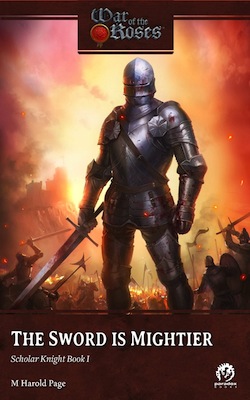Mack Reynolds: Science Fiction Author and… African Explorer?
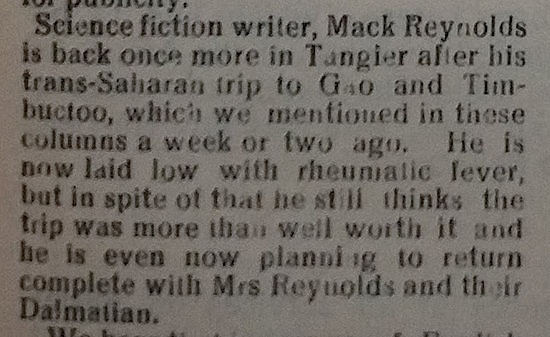
On a recent writing retreat in Tangier, Morocco, I was going through back issues of the Tangier Gazette, an English-language newspaper from the International Zone era. During this time, which lasted from 1924–1956, Tangier was run by several different European nations plus the United States. The governments gave people a free hand, and Tangier became notorious for allowing things that were illegal everywhere else — drugs, homosexuality, and prostitution. That attracted writers such as William S. Burroughs, Paul and Jane Bowles, and many others.
The April 6, 1956, edition of the Gazette has this little tidbit about Mack Reynolds, a prominent science fiction author of his day. His career got started shortly after World War Two in the detective pulps, and he soon branched out to write science fiction. Reynolds had a taste for travel and moved to Mexico in 1953. He and his wife soon pulled up stakes and set off on an epic ten-year trip through Europe, North Africa, and the Far East, supported by his science fiction and travel writing. The trip finally ended with their return to Mexico.
During his time in Morocco, he and his wife struck out into what is now Mali to visit Gao and Timbuktu. This is not an easy trip now, and back then it was an epic journey few attempted. Just look at what happened to Kit Moresby in The Sheltering Sky.
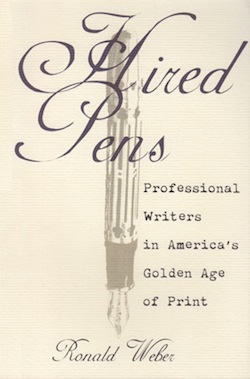 Last month I posted here about
Last month I posted here about 